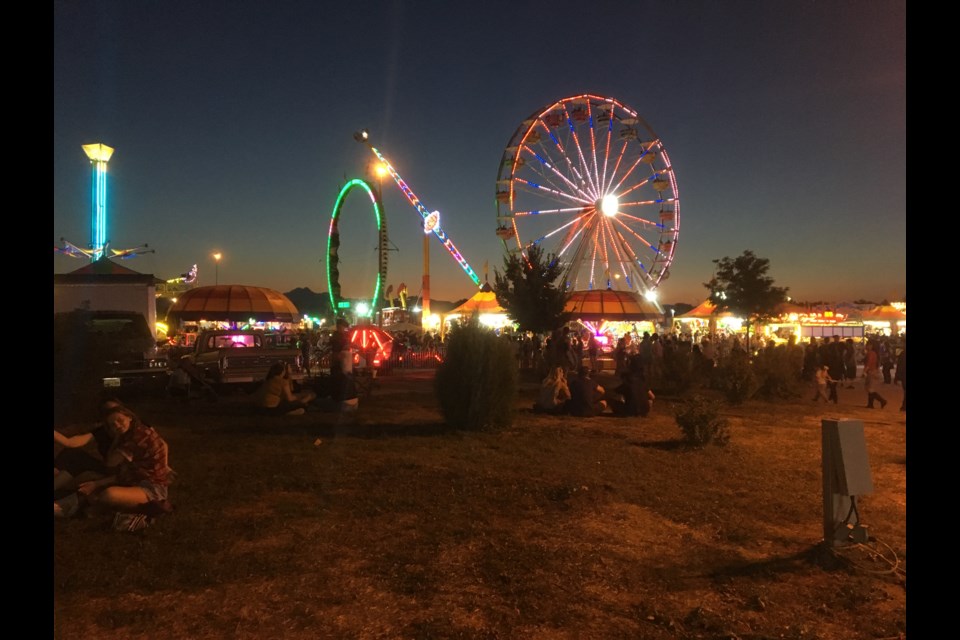The Boulder County Fair, a 150-year tradition that annually draws thousands of people to the Longmont fairgrounds for a week of activities, concerts and more won’t celebrate its 151st year of in-person activities and events until 2021.
Organizers this week announced this year’s fair scheduled for July 31 through Aug. 9 has been canceled because of continuing concerns over the novel coronavirus.
“Due to the evolving COVID-19 situation and its impact on community health, Boulder County is unable to host the Fair in a safe environment for all of our fairgoers to enjoy,” organizers stated in a Facebook post this week.
The fair will continue virtually and could possibly have some 4-H and Future Farmers of America youth livestock modified events on the fairgrounds, according to the post.
But entertainment activities will be moved to July 30 through Aug. 8, 2021, with fair organizers stating they anticipate “it will be safe to hold large gatherings at that time.” Among the entertainment activities that were on tap this year, according to the fair’s website, were the Pro Bulls Tour, Colorado Professional Rodeo Association and Mexican rodeos, All Star Monster Trucks, Extreme Dogs, a demolition derby, a mountain bike stunt show, eight free concerts and, of course, carnival rides, games and food.
“We look forward to brighter and better days ahead when we can reunite together to celebrate all that the Boulder County Fair has to offer,” fair organizers stated in the Facebook post. “The Board and staff hope that you stay safe, be well and support each other. Please follow our social media for the virtual experiences of the Boulder County Fair.”
Fair director Laura Boldt said organizers hope a decision about if 4H activities will be held in-person, virtually or as a mix of both will be made in the next few weeks. Right now, she said, they are looking to the state for guidance on when COVID-related restrictions might be eased.
Reaction to the decision was mixed in the comments on the Facebook post, with some saying they respected the hard decision fair organizers made, while others expressed frustration about another event lost to the ongoing pandemic. The most support for the decision has come from those who depend on events such as the fair for their livelihoods, Boldt said.
“Entertainers and vendors are very supportive, they do understand,” she said, adding that asking them to come back in 2021 has helped soften the blow. “Those are the (people) who are missing out the most and they’ve been very supportive.”
Fair attendance averages 150,000 over 10 days, and it draws about 500 4H members, 160 volunteers and about 200 Creative Living Project competitors, Boldt said.
Nancy Rezac, executive director of Visit Longmont, said the cancellation of the fair, along with a number of other summer programs is sure to have an economic impact on the city. She pointed to a now-5-year-old study conducted by the University of Colorado Leeds School of Business that found of the estimated 337,900 visitors and 831 vendors to the Boulder County Fairgrounds in 2015, 38% were to the fair.
Vendors and attendees from out of town tended to stay in Longmont, according to the study.
“The fairgrounds generated $9.4 million in direct economic activity in the Longmont area in 2015 through on-site purchases during events and through community retail sales, dining, entertainment, overnight visitors, and other related activities,” the study stated. “This local spending grows as money gets spent and respent in a community (i.e., the multiplier effect). The economic benefits (multiplier effect) associated with the fairgrounds totaled $6.9 million in 2015, excluding economic activity from local patrons.”
The fair’s cancellation also means the annual parade presented by the Kiwanis Club is scratched for this year. The parade, which was scheduled for Aug. 1, each year winds its way through Longmont starting and ending at Roosevelt Park.
Ken White coordinates the parade on behalf of the Longmont Kiwanis Club and has been a club member since 2008. He said this is the first time in his recollection the parade has been canceled since it began in 1959. And while the cancellation won’t have a deep financial impact on the club, he is still sorry to see the tradition scratched this year.
The club receives $1,000 from the Boulder County Fair Board to organize the parade and entry fees are nominal — $10 for entrants or $25 for political entrants, White said. The funding mainly covers logistics and materials, such as no parking signs, needed for the event, but does not support the club’s programs and efforts to serve children, he said. Most of the club’s funding comes from the making of wooden toys that are sold and also given to children in need.
Last year, the parade featured 62 entries, but in years past has drawn as many as 80 floats, groups and organizations, including color guards from the local American Legion and Veterans of Foreign Wars posts and the Civic Air Patrol’s Vance Brand Cadet Squadron, he said.
The decision to cancel both from a governmental perspective as well as from the point of view of parade participants and spectators is understandable, though, White said.
There really is no way for spectators to socially distance from one another when the parade draws as many as 3,000 to 4,000 viewers lined up along city streets, he said. Plus, the need for facial coverings steals the joy of seeing smiles on everyone’s faces.
“I can see why no one wants to stand on the street looking at a parade wearing a mask looking at people in a parade wearing masks,” he said.



